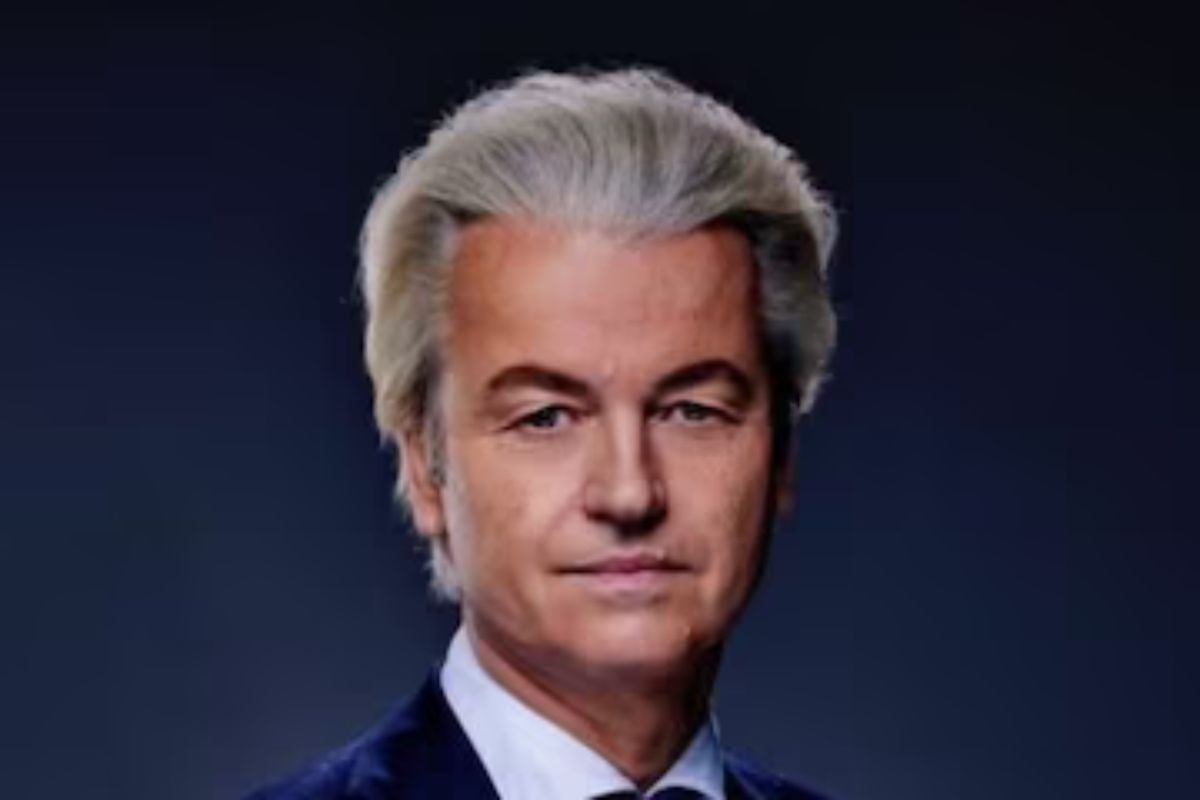Tea growers look to explore African market for exports
Indian tea growers have now decided to explore the African continent, after having penetrated the European countries, said tea associations from Asia at their annual summit in the city.
Wilders’ Party for Freedom (PVV) ended up with 23.6 per cent of the vote and 37 seats in a 150-member parliament.

Geert Wilders
Who would have thought that Geert Wilders, one of the longest sitting members of the Dutch parliament, would one day be in a pole position to aspire to the post of prime minister of the Netherlands? But that’s precisely the perch to which last Wednesday’s snap election elevated the far right, vocally Islamophobic weirdo.
Wilders’ Party for Freedom (PVV) ended up with 23.6 per cent of the vote and 37 seats in a 150-member parliament. It’s not exactly a ringing popular endorsement, even though it adds up to 20 more seats than the PVV secured in 2021, and a higher total than any other party. Extended negotiations probably lie ahead in the effort to forge a ruling coalition — the task took almost 300 days after the 2021 election — and if one emerges, it’s possible that Wilders will be restricted to a secondary position.
In an effort to attract broader support among the less extremist right, Wilders has already suggested that his plans to ban mosques, head coverings and the scriptures can be put on ice. His priorities are to restrict immigration, yet at least some immigrants voted for the PVV because it promised improvements in housing and social care — although they may be restricted to ethnic Europeans if Wilders has his way.
Advertisement
That variety of nativism was not a priority for Javier Milei, whose triumph in Argentina’s second-round presidential election a few days earlier could indeed be described as a landslide, given his 12 per cent advantage over a rival who had outvoted Milei in the first round. That rival happened to be Sergio Massa, the incumbent economy minister under whose watch inflation exceeded 140 per cent — considerably worse than the appalling levels reached in Pakistan.
The ‘solution’ that Milei, who calls himself an anarcho-capitalist, has sold to the masses is extreme neoliberal shock therapy: sharply reducing the size of the state by privatising its assets and eliminating ministries, slashing spending, abolishing the central bank and adopting the US dollar as the national currency. He has also petrified feminists and LGBTQ+ activists with his intentions in one of Latin America’s most socially progressive countries.
However, somewhat like Wilders, Milei has to contend with the fact that he will have to deal with a parliament in which his upstart party constitutes a fairly inconsequential minority. Hence compromises are already in play, ahead of his inauguration next month.
For instance, his vow to freeze relations with Argentina’s main trading partners, China and Brazil — because “pacts with communists” were unacceptable — is no longer on the agenda. And his turn towards pragmatism is also reflected in his stark shift from denigrating the Argentinian Pope Francis as “a Jesuit who promotes communism” and the devil’s representative on earth to inviting ‘Your Holiness’ to visit his homeland next year. Milei’s presidency nonetheless promises to be a rough ride, not least because many of the ‘solutions’ he proposes have disastrously flopped when attempted before by Argentina’s military junta as well as the 2015-19 Mauricio Macri government.
On the face of it, Latin America and Europe may not have much in common, but the resurgence of the far right in disparate parts of the world can often be traced to similar causes. The foremost among them is the failure of the so-called centre-left and centre-right — often barely distinguishable from one another — to forge political economies that satisfy the basic needs of all segments of society. More often than not, their policies serve to exacerbate economic disparities and societal dysfunction. That in–evitably tends to drive voters towards extremist alt–ernatives.
In Europe, the go-to option when the centre cannot hold and things fall apart is the far right. The atomised and discombobulated left shares the blame for the failure to propose convincing alternatives. But let’s not forget that even when it does, it is rapidly trampled down by the jackboots of the political and media establishment. Britain’s Corbyn phenomenon serves as both an inspiring example and a cautionary tale. Likewise, the fate of Syriza in Greece, which went downhill after winning power, in the face of the European Union’s neoliberal nastiness. There’s a degree of irony in many European far right factions seeing the EU as part of the problem.
The far right is running rampant across the democracies in Europe, going mainstream in nations that until recently stood out as exemplars of socioeconomic progress. If France falls to Marine Le Pen, Germany may well be next. The US is an even more massive concern. Latin America is different, although far from immune to neo-fascist tendencies. Milei is unsurprisingly a fan of Israel, but the rest of his continent is the only one to have substantially shown any resistance as the Zionist beast slouches towards Bethlehem.
Advertisement